2010 年 9 月公共英语四级考试真题及答案
26
to take the risk. 28
thirty-nine years it lay there,
back
24
25
31 Since the gold was the
32
Section I Listening Comprehension (30 minutes) 听力 1-20 略
Section II Use of English (15 minutes) 英语常识
In 1942, the HMS Edinburgh was sunk in the Barents Sea. It was on its 21
to Britain with ninety-one boxes of Russian gold. 22
23 . No one was allowed to explode it, either, since the
too deep for divers to
. Then, in 1981, an ex-diver called
bodies of sixty of the crew also lay in the
he could not afford to
Jessop decided to try using new diving techniques.
which was going to cost four million pounds, he had to look for
finance the
people who were 27
, they were not even sure the gold was
going to be there! First a Scottish diving company, then a German shipping company
agreed to join in the retrieval 29 . Not long after that, Jessop
30 a fourth company
to take a
of the British and the Soviet governments,
they both hoped to make a
33 , too! The biggest problem was how to get 34 the gold.
Fortunately, they were able to examine the Edinburgh's sister ship, the HMS Belfast,
to
They knew it was to be an extremely difficult and dangerous undertaking. To reach
the gold,they would have to cut a large square 37
the body of the ship, go through
the empty fuel tank and down to the bomb room. After twenty-eight dives, they
38
to find the first bar. Everyone worked
the clock, helping to clean and stack
the gold,
第 21 题:
A.road
B.path
C.way
D.passage
40 as to finish the job as quickly as possible.
35 out the exact location of the bomb room,
36 the gold was stored.
39
第 22 题:
A.During
B.For
C.At
D.Since
第 23 题:
A.find
B.discover
C.dive
D.reach
第 24 题:
A.wreck
B.ruin
�
C.relic
D.waste
第 25 题:
A.Although
B.Unless
C.As
D.If
第 26 题:
A.research
B.operation
C.movement
D.search
第 27 题:
A.willing
B.luckly
C.committed
D.engaged
第 28 题:
A.All in all
B.In addition
C.In case
D.After all
第 29 题:
A.assignment
B.temptation
C.attempt
D.commission
第 30 题:
A.introduced
B.persuaded
C.associated
D.stimulated
第 31 题:
A.chance
B.look
C.measure
D.choice
�
第 32 题:
A.business
B.estate
C.obligation
D.property
第 33 题:
A.profit
B.benefit
C.success
D.welfare
第 34 题:
A.about
B.around
C.to
D.from
第 35 题:
A.get
B.take
C.work
D.try
第 36 题:
A.which
B.where
C.here
D.there
第 37 题:
A.on
B.in
C.among
D.along
第 38 题:
A.managed
B.achieved
C.succeeded
�
D.fulfilled
第 39 题:
A.before
B.by
C.with
D.round
第 40 题:
A.that
B.much
C.far
D.so
Section III Reading Comprehension (60 minutes) 阅读理解 A
Competition for admission to the country's top private schools has always been tough,
but this year Elisabeth realized it had reached a new level. Her wake-up call came
when a man called the
Dalton School in Manhattan, where Elisabeth is admissions
director, and inquired about the age cutoff for their kindergarten program. After
providing the information, she asked about the age of his child. The man paused
for an uncomfortably long time before answering. "Well, we don't have a child yet.
We're trying to figure out when to conceive a child so the birthday is not a problem.
"
Worries are spreading from Manhattan to the rest of the country. Precise current
data on private schools are unavailable, but interviews with representatives of
independent schools all told the same story: an oversupply of applicants, higher
rejection rates. "We have people calling us for spots two years down the road, "said
Marilyn of the Seven Hills School in Cincinnati. "We have grandparents calling for
pregnant daughters. " Public opinion polls indicate that Americans' No. 1 concern
is education. Now that the long economic boom has given parents more disposable
income, many are turning to private schools, even at price tags of well over $10,000
a year. "We're getting applicants from a broader area geographically than we ever
have in the past," said Betsy of the Latin School of Chicago, which experienced
a 20 percent increase in applications this year.
The problem for the applicants is that while demand has increased, supply has not.
"Every
year, there are a few children who do not find places, but this year, for the first
time that I know
of, there are a significant number without places," said Elisabeth.
So what can parents do to give their 4-year-old an edge? Schools know there is no
easy way to pick a class when children are so young. Many schools give preference
to children of their graduates. Some make the choice by drawing lots. But most rely
on a mix of subjective and objective measures: tests that at best identify
developmental maturity and cognitive potential, interviews with parents and
observation of applicants in classroom settings. They also want a diverse mix.
�
Children may end up on a waiting list simply because their birthdays fall at the
wrong time of year, or because too many applicants were boys.
The worst thing a parent can do is to pressure preschoolers to perform--for example,
by pushing them to read or do math exercises before they're ready. Instead, the
experts say, parents should take a breath and look for alternatives. Another year
in preschool may be all that's needed.
41、From this text we learn that it is
A.harder to make a choice between public and private schools.
B.harder to go to private schools this year than before.
C.more difficult to go to public schools than to private schools.
D.as difficult to go to private schools this year as before.
42、The sentence "We have people...down the road" ( Line 3 - 4, Paragraph 2) probably
means
A.we have people calling us for parking space two years ahead of time.
B.people callde us for permission to use the places two years ago.
C.we received calls from people down the road two years ago.
D.people called us for school vacancies two years in advance.
43、The text indicates that private schools are very selective because they
A.have no reliable methods to pick students for a class.
B.want a good mixture of boys and girls for classes.
C.encounter more demand than they can cope with.
D.prefer to enroll children of their relatives.
44、From the text, we can infer that the author
A.favors the idea of putting children on a waiting list.
B.agrees to test preschooler's cognitive potentials.
C.thinks children should be better prepared academically
D.disapproves of the undue pressure on preschoolers.
45、Which of the following can serve as a title of this text?
A.Hard Time for the Preschoolers
B.Prosperity of Private Schools
C.The Problem for Public Schools
D.Americans's No. 1 Concern
William Shakespeare described old age as" second childishness"--no teeth, no eyes,
no taste. In the case of taste he may, musically speaking, have been more perceptive
than he realised. A paper in Neurology by Giovanni Frisoni and his colleagues at
the National Centre for Research and Care of Alzheimers's Disease in Italy, shows
that frontotemporal dementia can affect musical desires in ways that suggest a
regression, if not to infancy ,then at least to a patient's teens.
Frontotemporal dementia, a disease usually found with old people, is caused, as
�
its name
suggests ,by damage to the front and sides of the brain. These regions are concerned
with speech, and with such" higher" functions as abstract thinking and judgment.
Two of such patients intrigued Dr Frisoni. One was a 68-year-old lawyer, the other
a 73-year-old housewife. Both had undamaged memories, but displayed the sorts of
defect associated with frontotemporal dementia--a diagnosis that was confirmed by
brain scanning.
About two years after he was first diagnosed, the lawyer, once a classical music
lover who referred to pop music as "mere noise", started listening to the Italian
pop band "883". As his com-mand of language and his emotional attachments to friends
and family deteriorated, he continued to listen to the band at full volume for many
hours a day. The housewife had not even had the lawyer's love of classical music,
having never enjoyed music of any sort in the past. But about a year after her
diagnosis she became very interested in the songs that her ll-year-old granddaughter
was listening to.
This kind of change in musical taste was not seen in any of the Alzheimer's patients,
and thus appears to be specific to those with frontotemporal dementia. And other
studies have remarked on how frontotemporal-dementia patients sometimes gain new
talents. Five sufferers who developed artistic abilities are known. And in another
case, one woman with the disease suddenly started composing and singing country
and western songs.
Dr Frisoni speculates that the illness is causing people to develop a new attitude
towards novel experiences. Previous studies of novelty-seeking behaviour suggest
that it is managed by the brain's right frontal lobe. A predominance of the right
over the left frontal lobe, caused by damage to the latter, might thus lead to a
quest for new experience. Alternatively, the damage may have affected some specific
nervous system that is needed to appreciate certain kinds of music. Whether that
is a gain or a loss is a different matter. As Dr Frisoni puts it in his article,
there is no accounting for taste.
46、The writer quotes Shakespeare mainly to
A.praise the keen perception of the great English writer.
B.support Dr. Frisoni's theory about a disease.
C.start the discussion on a brain disease.
D.show the long history of the disease.
47、The word "regression" in the 1 st paragraph is best replaced by
A.backward movement.
B.uncontrolled inclination.
C.rapid advancement.
D.unexpected restoration.
48、After contracting frontotemporal dementia, the 68-year-old lawyer
A.became more dependent on his family.
B.grew fond of classical music.
�
C.recovered from language incompetence.
D.enjoyed loud Italian popular music.
49、Frontotemporal dementia is a disease
A.identified with loss of memory.
B.causing damage to certain parts of the brain.
C.whose patients may develop new talents.
D.whose symptoms are similar to those of Alzheimer's patients.
50、Dr Frisoni attributed the patients' changing music taste to
A.man's desire to seek novel experience.
B.the damage to the left part of the brain.
C.the shift of predominance from the right lobe to the left.
D.the weakening of some part of the nervous system.
Who's to blame? The trail of responsibility goes beyond poor maintenance of British
railways, say industry critics. Stingy governments--both Labor and Tory--have cut
down on investments in trains and rails. In the mid-1990s a Conservative government
pushed through the sale of the entire subsidy-guzzling rail network. Operating
franchises were parceled out among private companies and a separate firm, Railtrack,
was awarded ownership of the tracks and stations. In the future, the theory ran
back then, the private sector could pay for any improvements--with a little help
from the state--and take the blame for any failings.
Today surveys show that travelers believe privatization is one of the reasons for
the railways's failures. They ask whether the pursuit of profits is compatible with
guaranteeing safety. Worse, split-ting the network between companies has made
coordination nearly impossible. "The railway was torn apart at privatization and
the structure that was put in place was...designed, if we are honest, to maximize
the proceeds to the Treasury," said Railtrack boss Gerald Corbett before resigning
last month in the wake of the Hatfield crash.
Generally, the contrasts with mainland Europe are stark. Over the past few decades
the Germans, French and Italians have invested 50 percent more than the British
in transportation infrastructure. Asa result, a web of high-speed trains now
crisscross the Continent, funded by governments willing to commit state funds to
major capital projects. Spain is currently planning 1,000 miles of new high-speed
track. In France superfast trains already shuttle between all major cities, often
on dedicated lines. And in Britain? When the Eurostar trains that link Pads, London
and Brussels emerge from the Channel Tunnel onto British soil and join the crowded
local network, they must slow down from 186 mph to a maximum of 100 mph--and they
usually have to go even slower.
For once, the government is listening. After all, commuters are voters, too. In
a pre-vote spending spree, the government has committed itself to huge investment
in transportation, as well as education and the public health service. Over the
next 10 years; the railways should get an extra~60 billion, partly through higher
subsidies to the private companies. As Blair acknowledged last month, "Britain has
�
been underinvested in and investment is central to Britain's future. " You don't
have to tell the 3 million passengers who use the railways every day. Last week
trains to Darlington were an hour late--and crawling at Locomotion No. 1 speeds.
51、In the first paragraph, the author tries to
A.trace the tragedy to its defective origin.
B.remind people of Britain's glorious past.
C.explain the failure of Britain's rail network.
D.call for impartiality in assessing the situation.
52、Travelers now believe that the root cause for failures of British railway is
A.the pursuit of profit.
B.its inefficient network.
C.the lack of safety guarantees.
D.the lack of safety guarantees.
53、According to Gerald Corbett, British railway is structured
A.for the benefit of commuters.
B.to the advantage of the govemment.
C.for the effect of better coordination.
D.as a replacement of the private system.
54、Comparing British railway with those of Europe, the author thinks
A.trains in Britain can run at 100 mph at least.
B.Britain should build more express lines.
C.rails in Britain need further privatization.
D.British railway is left a long way behind.
55、What does the author think of Blair's acknowledgement?
A.It's too late to improve the situation quickly enough.
B.It's a welcomed declaration of commitment.
C.Blair should preach it to other travelers.
D.Empty words can't solve the problem.
No man has been more harshly judged than Machiavelli, especially in the two centuries
following his death. But he has since found many able champions and the tide has
turned. The prince has been termed a manual for tyrants, the effect of which has
been most harmful,
But were Machiavelli's doctrines really new? Did he discover
them? He merely had the frankness and courage to write down what everybody was
thinking and what everybody knew. He merely gives us the impressions he had received
from a long and intimate intercourse with princes and the affairs of state. It was
Lord Bacon who said that Machiavelli tells us what princes do, not what they ought
to do. When Machiavelli takes Caesar Borgia as a model, he does not praise him as
a hero at all, but merely as a prince who was capable of attaining the end in view.
The life of the state was the primary object. It must be maintained. And Machiavelli
has laid down the principles, based upon his study and wide experience, by which
�
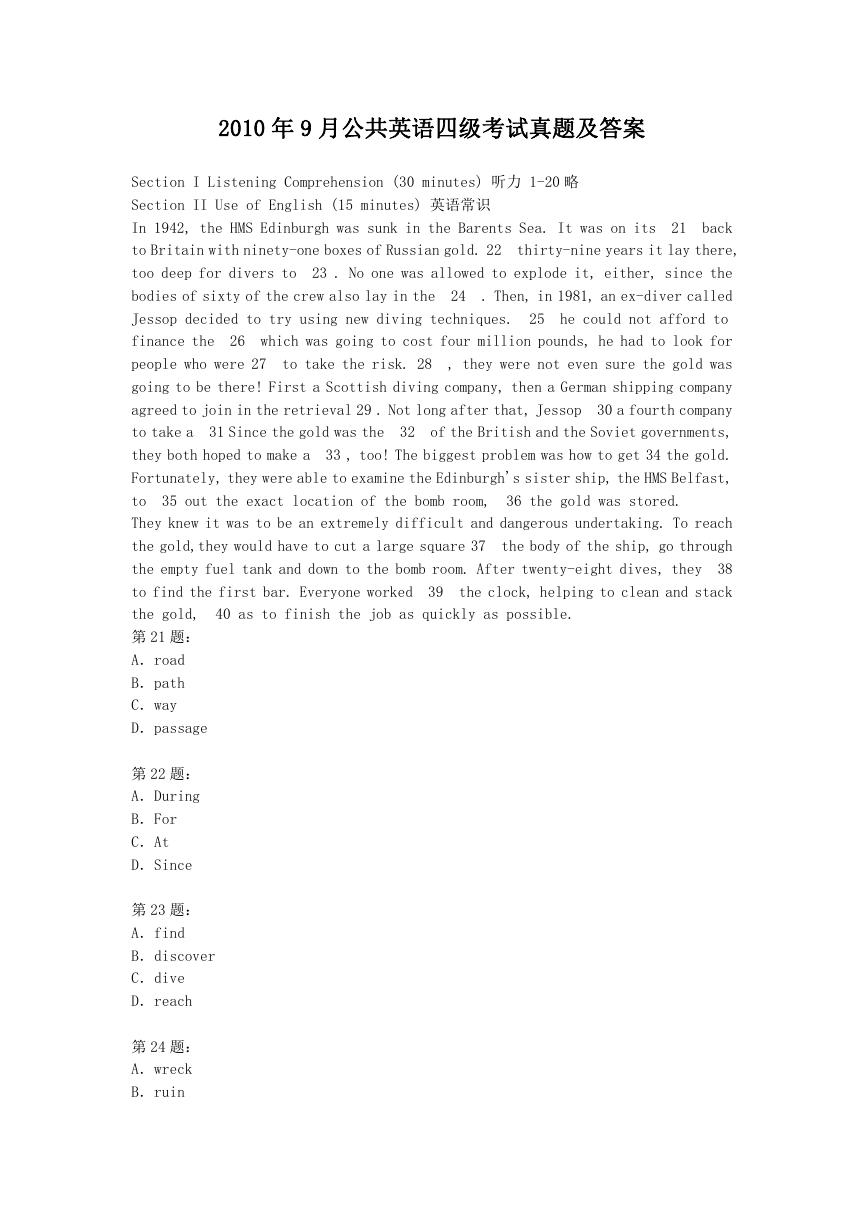
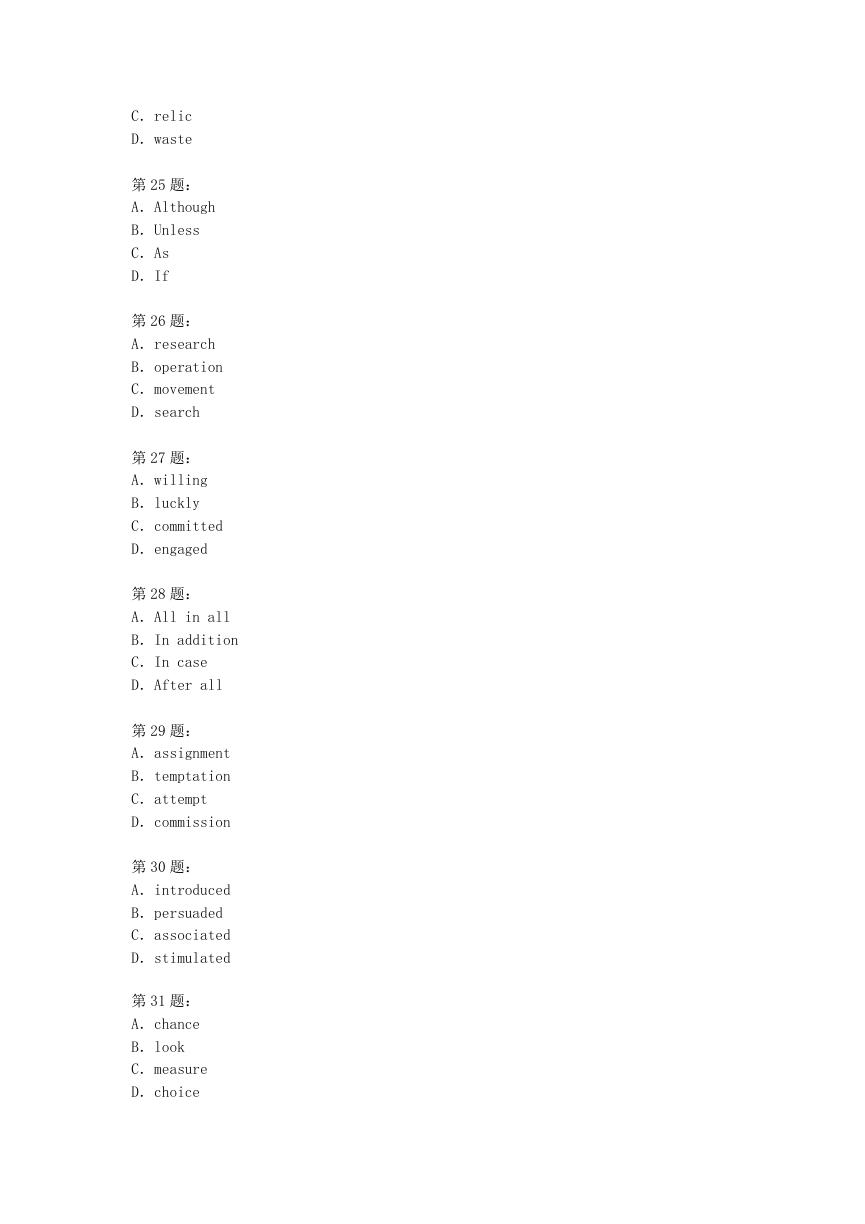

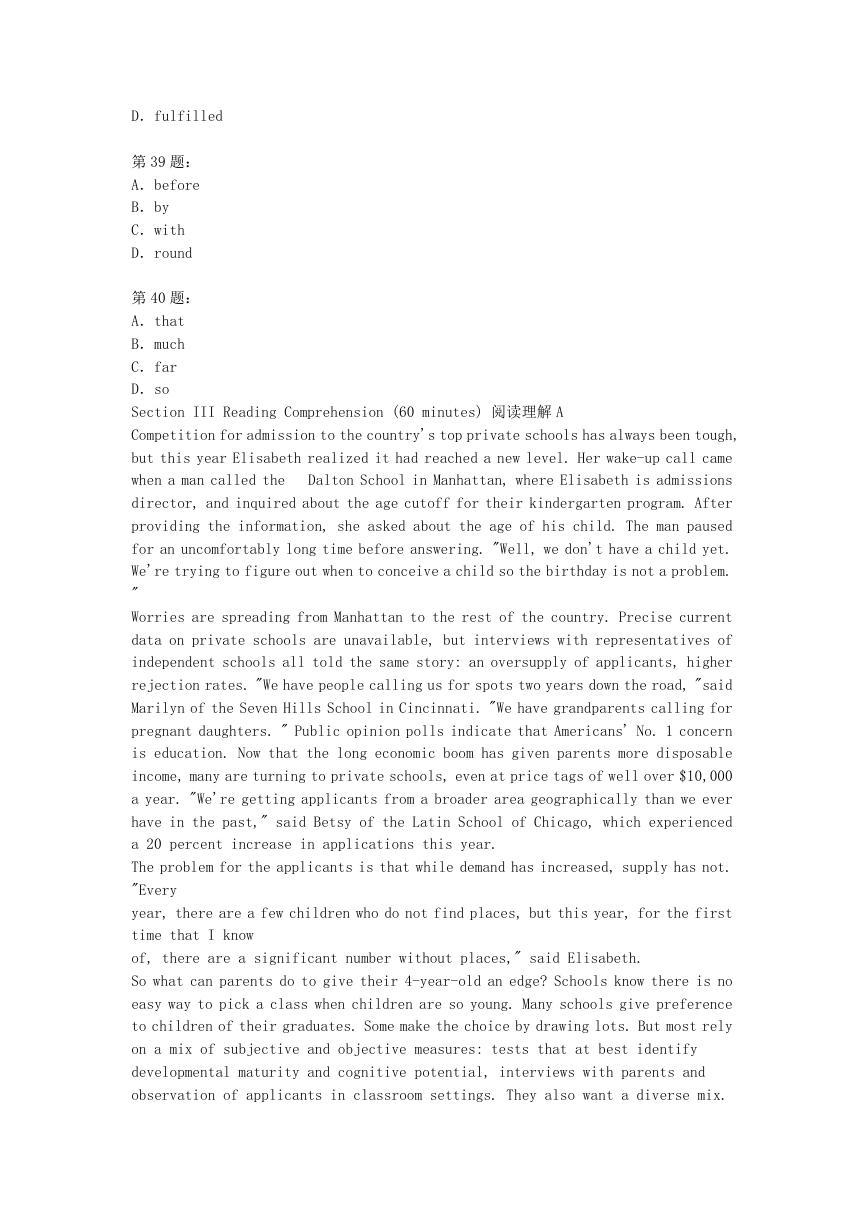
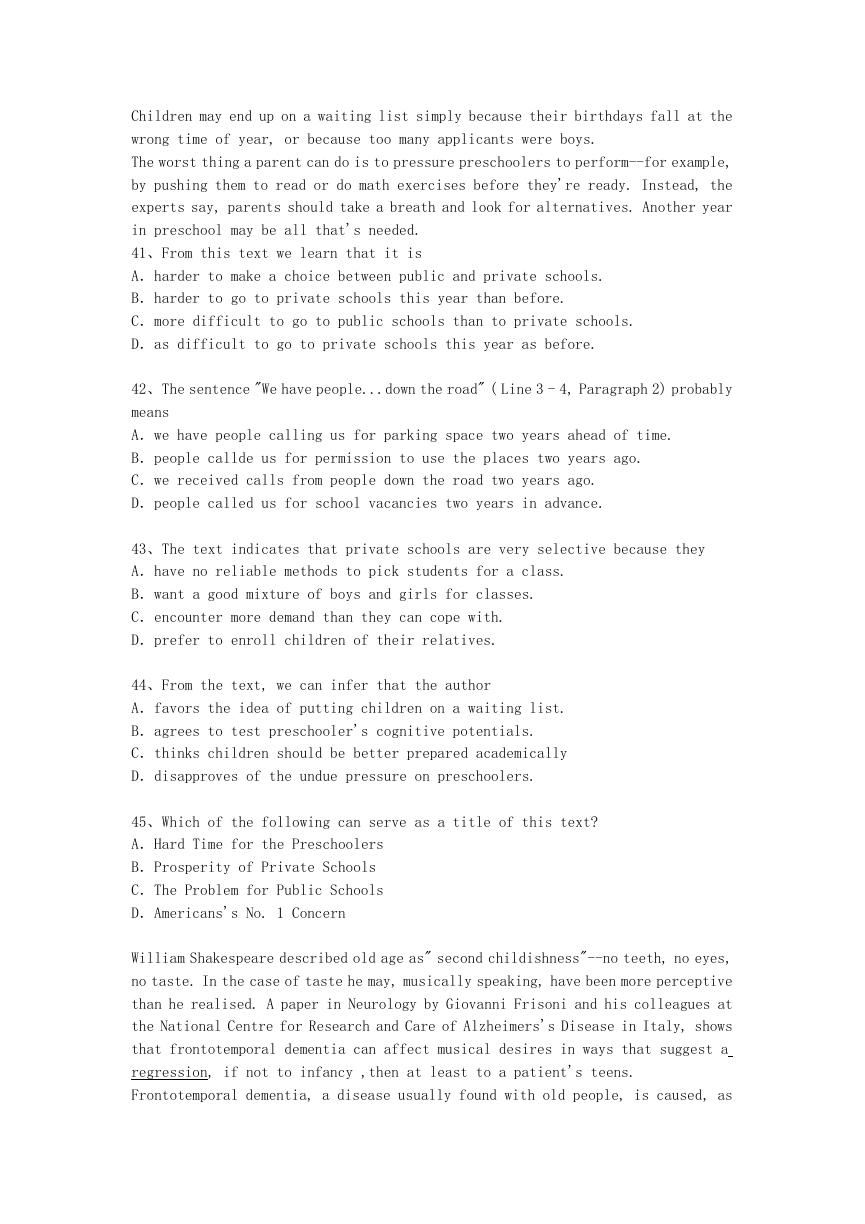
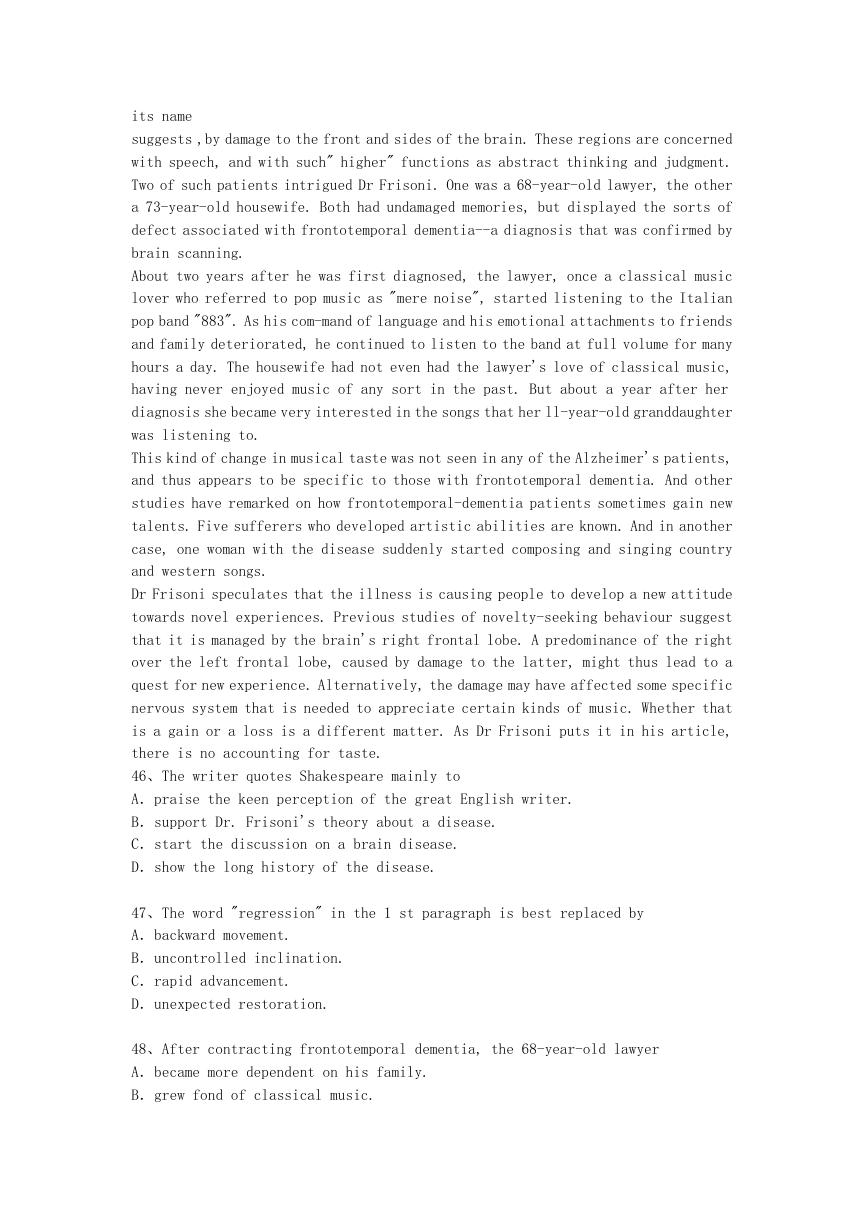
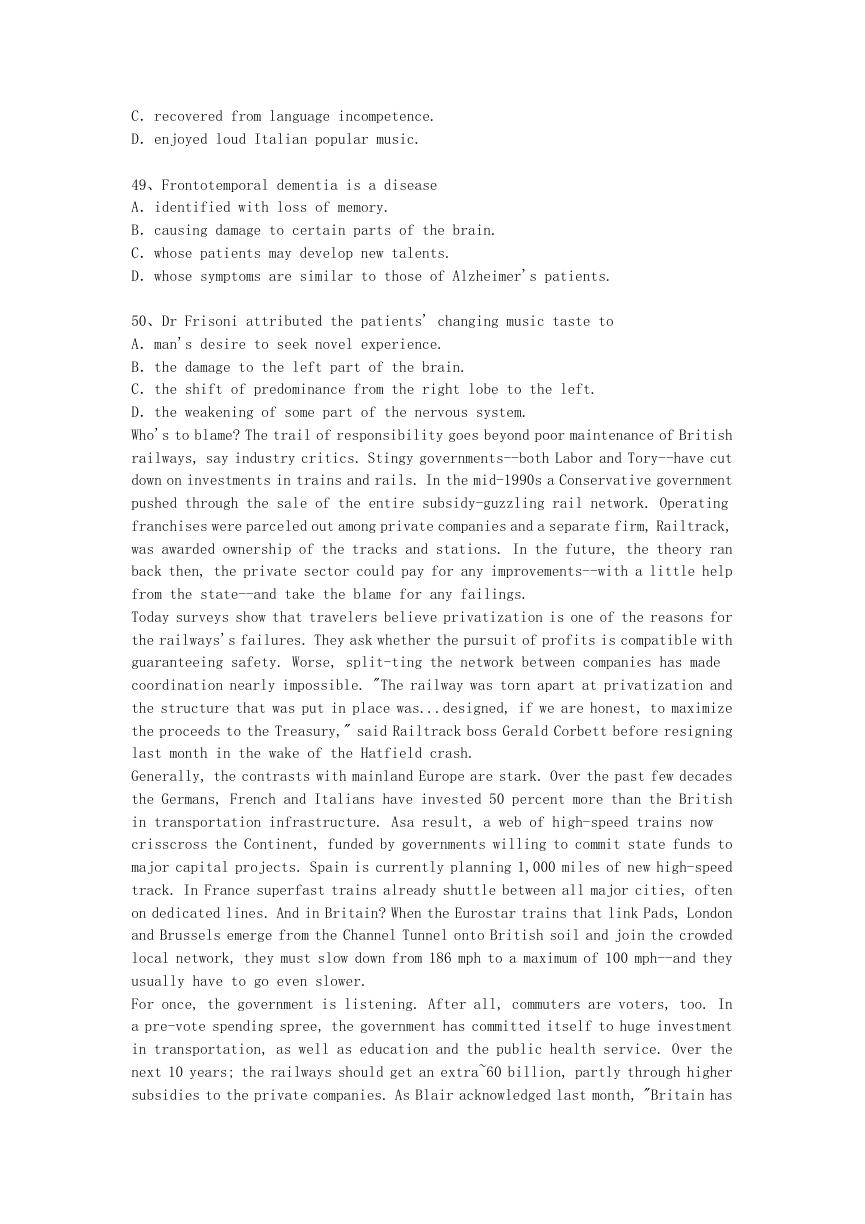
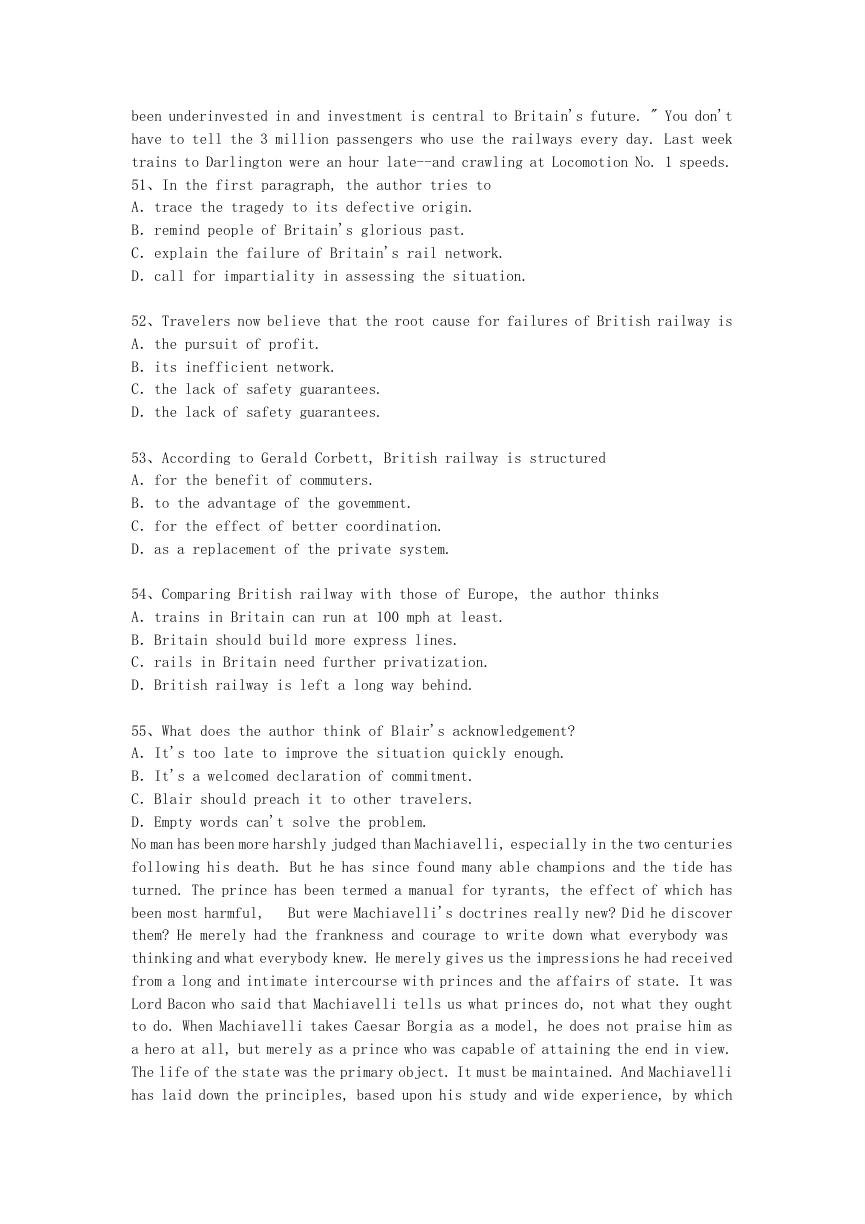








 2023年江西萍乡中考道德与法治真题及答案.doc
2023年江西萍乡中考道德与法治真题及答案.doc 2012年重庆南川中考生物真题及答案.doc
2012年重庆南川中考生物真题及答案.doc 2013年江西师范大学地理学综合及文艺理论基础考研真题.doc
2013年江西师范大学地理学综合及文艺理论基础考研真题.doc 2020年四川甘孜小升初语文真题及答案I卷.doc
2020年四川甘孜小升初语文真题及答案I卷.doc 2020年注册岩土工程师专业基础考试真题及答案.doc
2020年注册岩土工程师专业基础考试真题及答案.doc 2023-2024学年福建省厦门市九年级上学期数学月考试题及答案.doc
2023-2024学年福建省厦门市九年级上学期数学月考试题及答案.doc 2021-2022学年辽宁省沈阳市大东区九年级上学期语文期末试题及答案.doc
2021-2022学年辽宁省沈阳市大东区九年级上学期语文期末试题及答案.doc 2022-2023学年北京东城区初三第一学期物理期末试卷及答案.doc
2022-2023学年北京东城区初三第一学期物理期末试卷及答案.doc 2018上半年江西教师资格初中地理学科知识与教学能力真题及答案.doc
2018上半年江西教师资格初中地理学科知识与教学能力真题及答案.doc 2012年河北国家公务员申论考试真题及答案-省级.doc
2012年河北国家公务员申论考试真题及答案-省级.doc 2020-2021学年江苏省扬州市江都区邵樊片九年级上学期数学第一次质量检测试题及答案.doc
2020-2021学年江苏省扬州市江都区邵樊片九年级上学期数学第一次质量检测试题及答案.doc 2022下半年黑龙江教师资格证中学综合素质真题及答案.doc
2022下半年黑龙江教师资格证中学综合素质真题及答案.doc